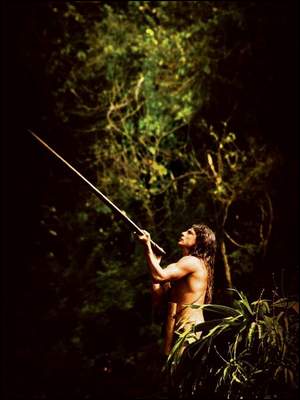This mistake in terminology is only one example of a strong need for much more Aboriginal awareness education. It should be understood that the term ‘Indian’ is not politically correct and with many down right offensive as it refers to people from India rather than Canada’s founding peoples. Many other cultures have varied language to refer to their first citizens; such as Aborigines in Australia and the Maori of New Zealand.
Imagine what the Indigenous people of the Americas would be called if Christopher Columbus would have been looking for Turkey rather than India! Why we would have a “Turkey Act” and a “Minister of Turkey Affairs.”
There are three groups of Aboriginal people in Canada: First Nations(Indians), Métis and Inuit. The majority of the 50,000 Inuit lives north of the tree line in Canada’s Arctic, and make up the majority of residents in Inuvialuit, Nunavut, Nunavik and Labrador.
Naturally, I try to use the term "Aboriginal" or "First Nations" to describe these people whenever I can. I also use "Native" to describe all the indigenous people of the Americas--whether they're American Indians, Central or South American Indians, Alaska Natives, Aboriginals, Métis, Inuit, or Native Hawaiians.
But we know "Indian" isn't offensive in the United States. In fact, it's preferred as a general term over "Native American." See "American Indian" vs. "Native American" for details.
We also know Columbus was looking for China, not India. And named Indians after the East Indies, not India. Not that it would affect this writer's argument, but let's get the facts straight.
"Indian" offensive?
I asked Aboriginal writer Richard Van Camp if Canada's indigenous people considered "Indian" offensive. He said no, but it wasn't commonly used. I gather calling an Aboriginal an "Indian" is something like calling an American Indian an "Amerindian"...not incorrect or offensive, but uncommon and perhaps offputting.
I wonder which term Canada's Aboriginals use when referring to the indigenous people of the United States, Mexico, Central America, or South America. Have you ever heard of Lakota Aboriginals, Cherokee Aboriginals, Maya Aboriginals, or Amazon Aboriginals? I haven't. I believe the most common term used for the indigenous people of the Americas is "Indian."
If this is true, it suggests a fallacy in the writer's argument. "Aboriginal" may be the accepted term in Canada, but "Indian" is accepted overall. Therefore, the writer should limit his remarks to Canadians and not try to "educate" the rest of us.
Natives aren't Turkeys
As for this writer's claim about Turkey...I presume Columbus would've called the Indians "Turks," not "Turkeys." I'm not sure that would be any worse than "Indian," "Native," or "Aboriginal." All these words are arbitrary. They don't have an exact meaning until we give them one.
It's like calling Caucasian people "white." Strictly speaking, is that accurate? No, since most Caucasians have pinkish-tan skins. But we call these people "white" because we think they're whiter than other people. And we call Indians "Indians" because we thought they were the native inhabitants of the East Indies.
That assumption was wrong, but they were the native inhabitants of islands similar to the East Indies. So similar, in fact, that we eventually called them the West Indies. So the name isn't totally unreasonable. We could conceivably call any native inhabitant of an Indies-like island an "Indian."
Below: An Indian, an Aboriginal, or...?


2 comments:
Good points. The Native people that I have worked with prefer above anything to be called by their own tribal name. They don't seem to care as much whether you call them Native American or American Indian after that, but if you are working with the Nez Perce for example, they prefer Ni Mii Puu.
Good point, Researcher. It's always preferable to use the name of a particular tribe. But it's not always possible, especially when you're talking about Indians as a whole.
Post a Comment